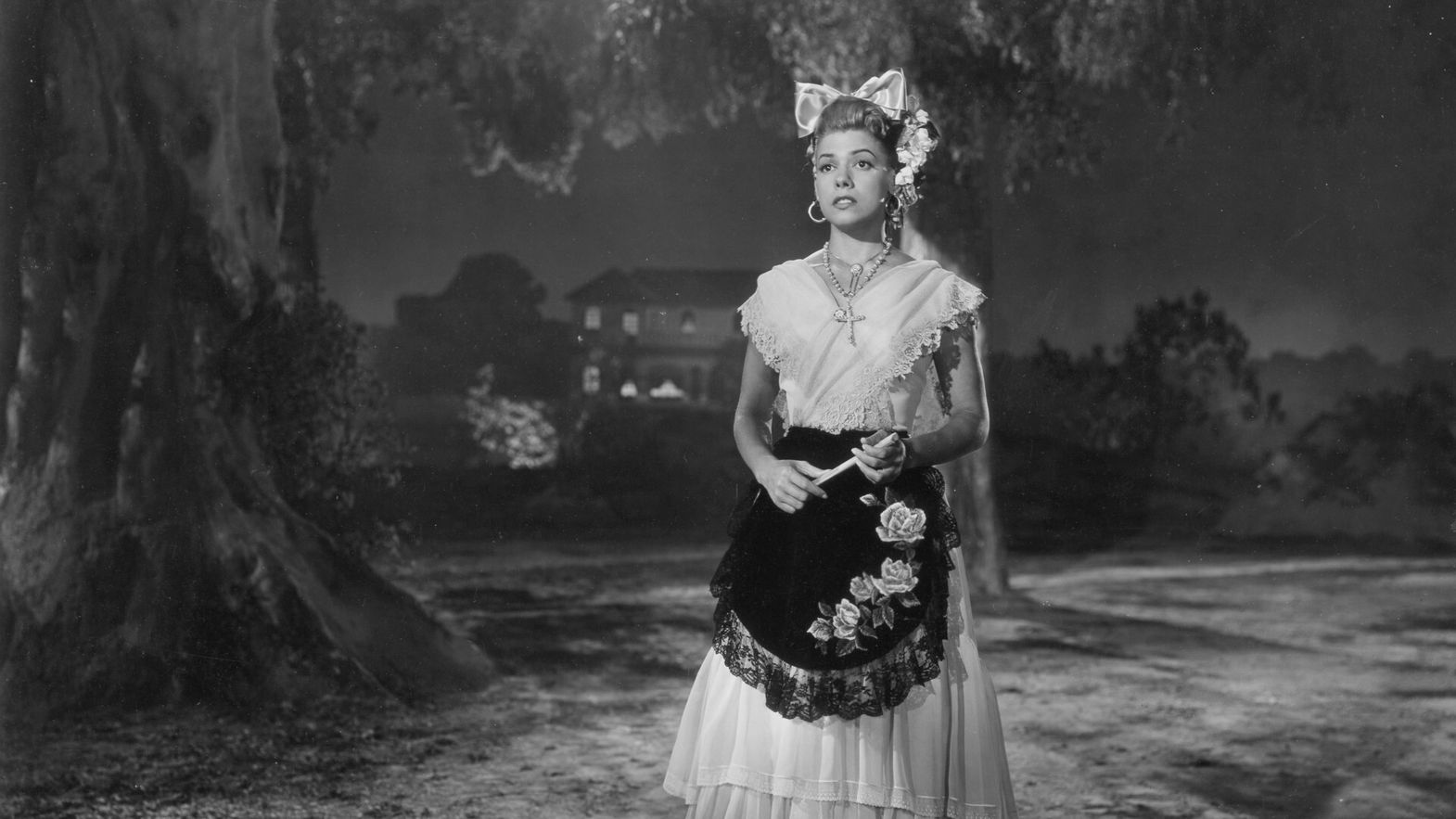 © Courtesy of Filmoteca UNAM
© Courtesy of Filmoteca UNAM
One of the most important melodramas of the decade, directed by the prolific Julio Bracho, shows with magnificent coherence how Mexican cinema was capable of mixing not only popular culture but also tones and styles. Llévame en tus brazos is structured according to the classic take on the genre: Rita is the daughter of an old fisherman who decides to sacrifice her own life and happiness in order to pay his father’s debts. Her decision brings her into a nightmare of exploitation and unhappiness, even if at a certain point she becomes a famous soubrette. The first part of the movie is set in a world that reflects the best side of Mexico: the community of fishermen where Rita lives is built on strong values and people with valuable moral codes. Bracho portraits this environment with attention and care, realizing something not that far from La terra trema by Luchino Visconti. The realism of the settings is perfectly mixed with the melodrama side, creating a cinematic energy impossible to ignore. The naturalism of Llévame en tus brazos is then the perfect vehicle for the erotism that the director wants to portray, showing the beauty of Ninón Sevilla, one of the brightest stars of Mexican cinema in the 1940s and 1950s. She is the heart and soul of the movie, an astonishing working-class woman able to transform in a sophisticated, elegant star in the second half. Thanks to her powerful performance Julio Bracho is able to make the shifts his movie goes through believable. After the rural beginning, in fact, Llévame en tus brazos develops the story of Rita in an environment that is more appropriate for a classic melodrama. In particular the spectacular set designing of the apartment where the heroine is ‘confined’, and where she faces the love of her youth again, represents a metaphoric mirror to the poor walls of the small house where she grew up. But in this golden cage Rita loses the soul that was so pure and strong when she was young and in love with a man who at the time respected her and loved her back in the right way. Behind the genre, Bracho’s movie holds a social commentary against the ‘easy life’, endorsing values belonging to the majority of popular audience. Llévame en tus brazos wants to please the big audience, sure, but daring to use in a bolder way the weapons of melodrama. Even the musical scenes in this movie are perfectly measured to fix in its different chapters. This is the definitive Julio Bracho’s heritage, a compendium of styles unified by an artisanal vision. In the highest meaning of the word.
Adriano Ercolani